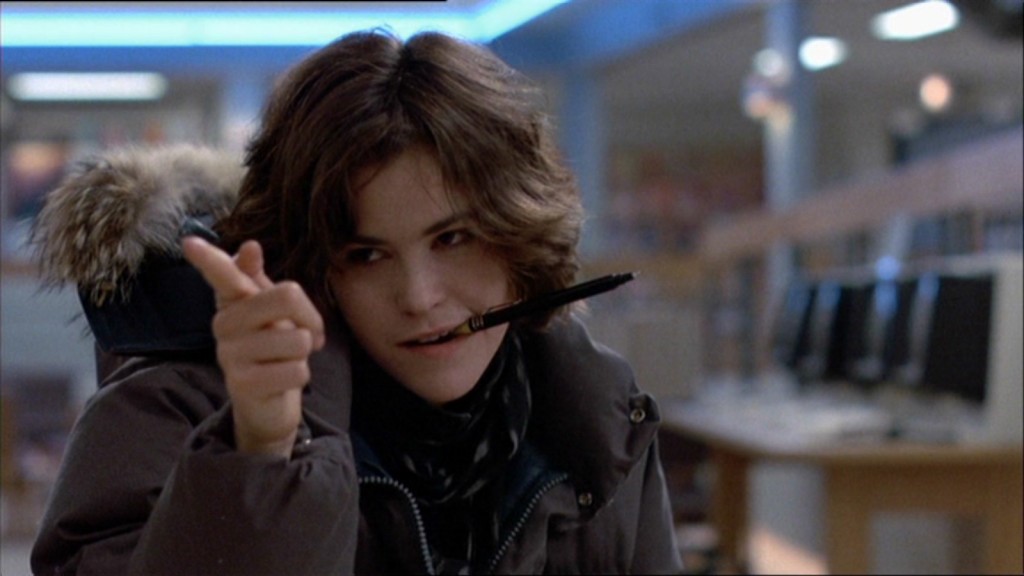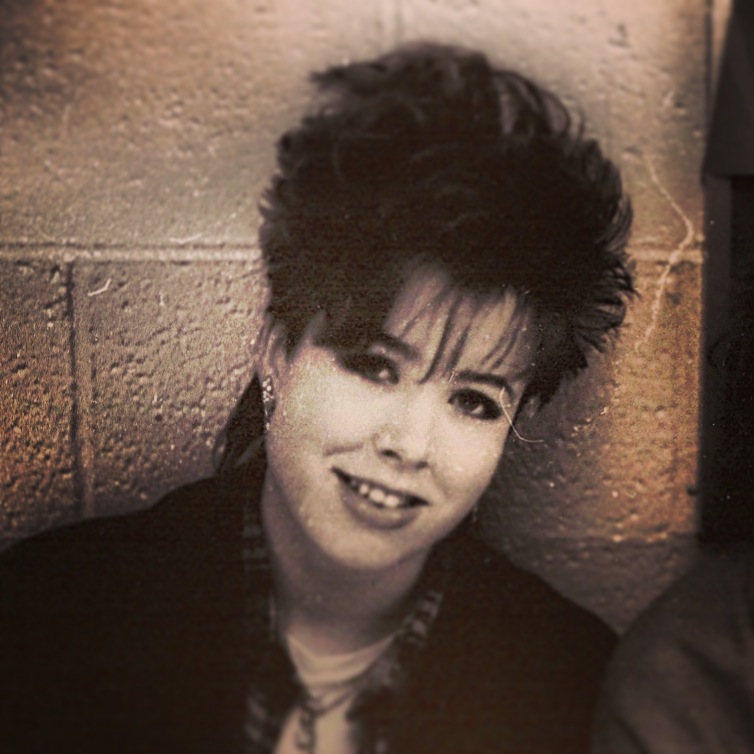
My favorite quote from Ally Sheedy’s character in “The Breakfast Club”: “When you grow up, your heart dies.”
Remember the basket case in “The Breakfast Club”? That was me in high school. I may not have been decorating my artwork with my dandruff, but I walked through the halls feeling lonely and disconnected. The academic part was easy. I took AP classes and earned mostly A’s with minimal effort, whipping out papers the night before they were due and barely studying. The social part was what killed me. I had a small group of close friends, and I don’t think I would have survived without them. I was adrift in high school, a nobody in a sea of kids who all seemed to belong somewhere.
Looking back, I recognize that I never found a niche in high school because I didn’t look for one. I didn’t join clubs or participate in sports. I didn’t audition for plays or musicals or learn to play an instrument. No one encouraged me to do any of those things. I’m not blaming my parents. My father worked the afternoon shift, and my stepmother was on days. Neither of them was around after school to drive me to auditions or practice even if I had thought to ask. I was a kid who preferred sitting alone in her room writing in her journal or reading a book, and it was the ’80s, an era of hands-off parenting not tiger mom hovering.
I’ve talked to a lot of moms who, like me, grew up in middle-class homes where music lessons and other activities were a luxury not an entitlement. And, like me, they have gone out of their way to ensure their own kids have the chance to participate in activities, hoping they will find something they love to do. Are we overcompensating for what we view as our parents’ slights against us? I don’t think so. We just happen to be lucky enough to be able to give our kids the opportunities we didn’t have.
Some of us, like me, do go a little overboard. My children (now 12 and 14) have begged to join — and eventually abandoned — a laundry list of sports and activities over the years, and I have almost always said yes. I do have one stipulation, however: They have to honor the commitments they make by finishing the class or season. I may have more disposable income than my parents did, but I’m not willing to shell out hundreds of dollars only to have them quit on a whim after one disappointing class or a particularly hard practice.
In my son’s case, music has been the only thing to stick. He found his true love, the piano, in fourth grade when we bought a used baby grand, and he started playing saxophone in the school band the following year. Music is something I hope will always be part of his life, but when he talked about joining the high school marching band, I had concerns. I worried about the grueling practice schedule, but not because I thought it would affect his scholastic performance. Like me, he is a kid for whom school comes easy. My fear was that he wouldn’t have time to make friends and have fun or, worse yet, that he would be labeled a “band kid” or “nerd” and ostracized.
What I could not have realized, because I knew nothing about marching band or the culture that surrounds it, is that he would find much more than his niche. All those practices, football games, parades, competitions and band camps (insert tired “American Pie” joke here) form unique, unbreakable bonds. My son doesn’t feel adrift when he walks through the halls of his high school because he knows he belongs somewhere. And that makes the countless hours my husband and I spent watching him participate in long forgotten sports and activities worth every second.
As an adult misfit who still feels like Ally Sheedy in “The Breakfast Club” much of the time socially, I wonder if things would have been different if I had tried a sport or learned to play an instrument, if I had made the effort to get involved in high school. But the feeling of not belonging is what pushed me to start a journal all those years ago. Writing helped me stay afloat during my high school years, and it’s been a beacon throughout my life. My love for it led me to major in English in college and become a magazine editor in Detroit. A potential newspaper job brought me to Chicago, which is where my life as a wife and mother began. And here I am, all these years later, writing this little blog, my online journal.
In the end, the goal is to be part of something bigger than yourself — whether it’s a marching band, a sports team or a family — and to find your place. It just takes some of us a little longer to get there.


Really lovely piece, Kathleen. My daughter and your son sound like kindred spirits.
Thanks, Rene. I am sure you are as happy and relieved as I am for my son that your daughter found her place so early during high school. What great memories they both are making!
That girl sitting to your left (a band member) felt the same way.
That is strangely reassuring. I guess it’s something all of us who are remotely different must suffer through, but at least we had each other.
P.S. I love this pic of us. Would it have been OK to leave you in it? I didn’t want to do so without asking.
Of course. It’s one of my faves, too. I think high school would be better for everyone involved if teenagers could just admit they share the same feelings. I never thought anyone else struggled with the same isolation I felt. Now I know they pretty much all feel it. Even ( and especially) the ones who seem well-adjusted on the surface.
It’s the same in adult life, don’t you think? Everyone experiences pain and sorrow. Some people reach out to others and share their feelings and in doing so find comfort. Others don’t. I remember being shut down or ridiculed by people when I tried to “come clean” about how I felt as a teenager. Not my close friends, like you, but others. A big part of the problem in our teen years is that we are too immature and self-obsessed to truly care about what others are feeling. It’s all about us.
Anyway, I feel very lucky to have had friends like you in my life back then. Even now, as an adult, I prefer to have a few close friends rather than a bunch of shallow acquaintances.